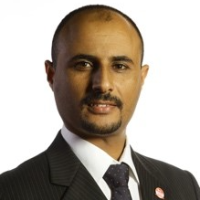2nd Euro
Nursing Congress
September 15-16, 2025 | Online
ENC 2025

Ben-Gurion University of the Negev, Israel
Abstract:
Background: In recent years, the therapeutic use of glucagon-like peptide-1 receptor agonists (GLP-1RAs), has gained momentum as a treatment for overweight and obesity. We aimed to identify sociodemographic, clinical and laboratory determinants relating to patient adherence to liraglutide treatment, among individuals with overweight or obesity.
Methods: We retrospectively analyzed patients who suffered from overweight or obesity and treated with liraglutide between 2019 and 2022. Over a six-month follow-up period, measurements of body mass index, sociodemographic characteristics, clinical and laboratory data, and prescription records for liraglutide were collected. Treatment adherence was assessed using the Proportion of Days Covered (PDC) measure, with PDC ≥ 80% indicating high adherence.
Results: The study population included 1,890 participants (78.1% female, mean age 46 ± 12 years). At the end of the follow-up period, 84.9% of the participants exhibited low adherence to liraglutide treatment. Adherence to treatment improved with age (p= 0.04, OR= 1.013, CI = 1.001-1.025). Significant weight loss during treatment increased the likelihood of high adherence (p< 0.001, OR = 1.251, CI = 1.167-1.341). Individuals from a higher socioeconomic background displayed improved adherence (p= 0.023, OR= 1.906, CI = 1.091-3.328). Increased adherence was also seen in non-smokers (p= 0.047, OR= 0.725, CI = 0.528-0.996).
Conclusions: Only 15.1% of study participants exhibited high adherence to treatment (PDC ≥ 80%) after six months of follow-up. Further research is needed to explore approaches to enhance adherence to liraglutide, including strategies to educate and support patients in their efforts to achieve and maintain weight loss with its use.
Biography:
Muhammad is a lecturer at the Nursing Department, Faculty of Health Sciences at Ben Gurion University of the Negev. His research focuses on two major fields. The first involves trans-cultural epidemiology, emphasising the ethnic variations among the southern Israel population. The second deals with the epidemiology of chronic diseases, focusing primarily on type 2 diabetes and related morbidity and cardiovascular diseases. He is the director of The Research Center for Health Promotion in the Bedouin Community. He has published more than 40 papers in reputed journals.
